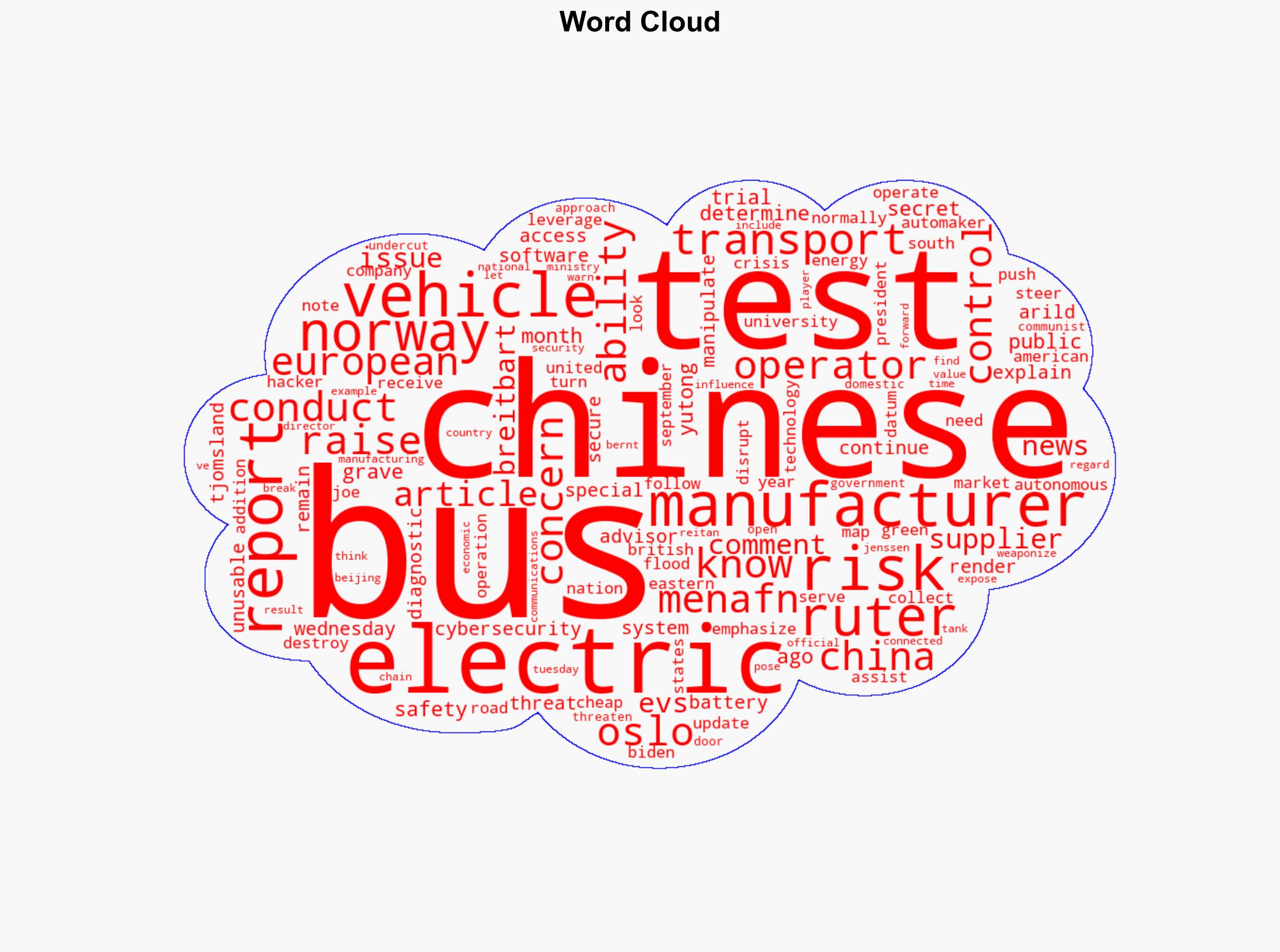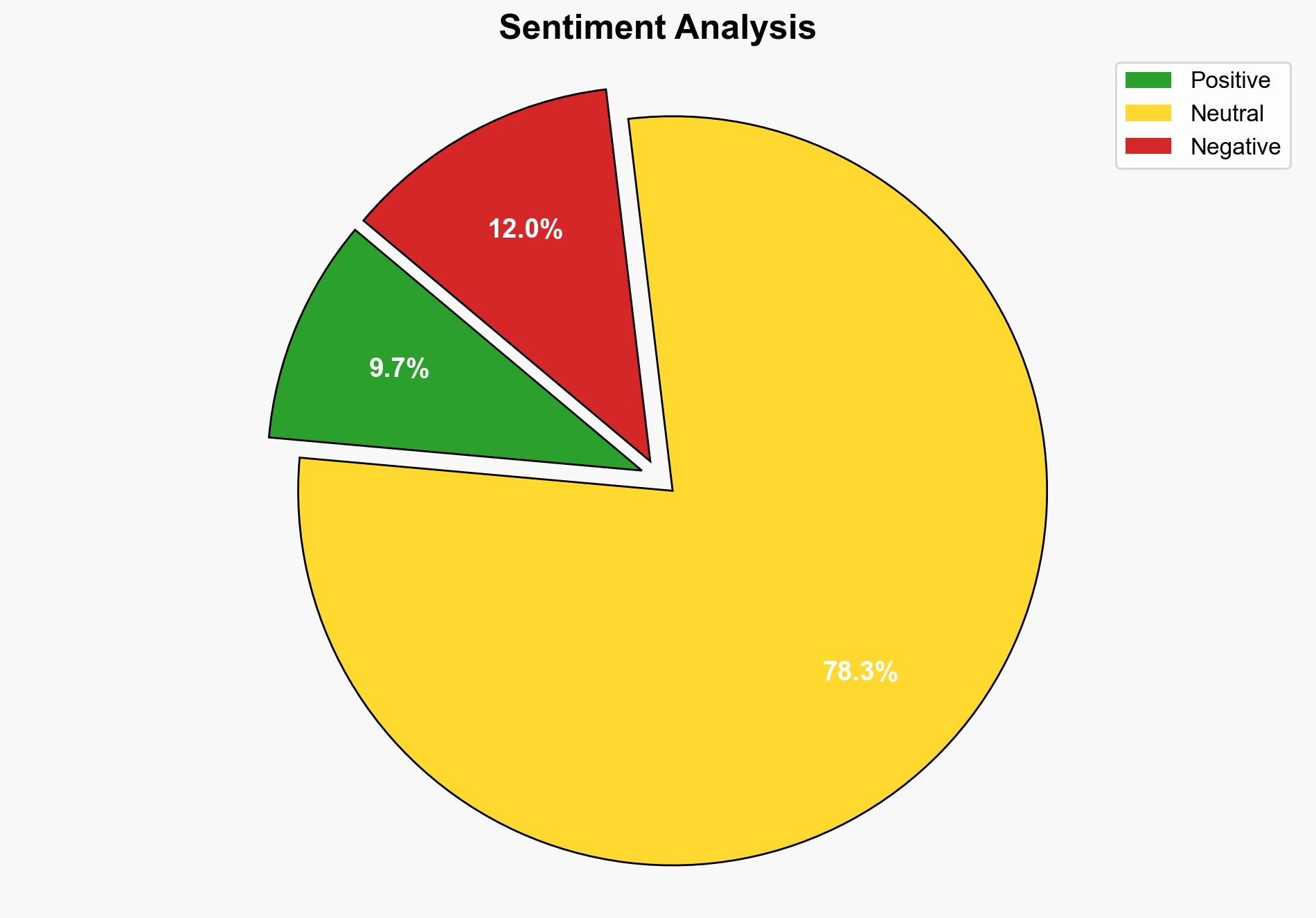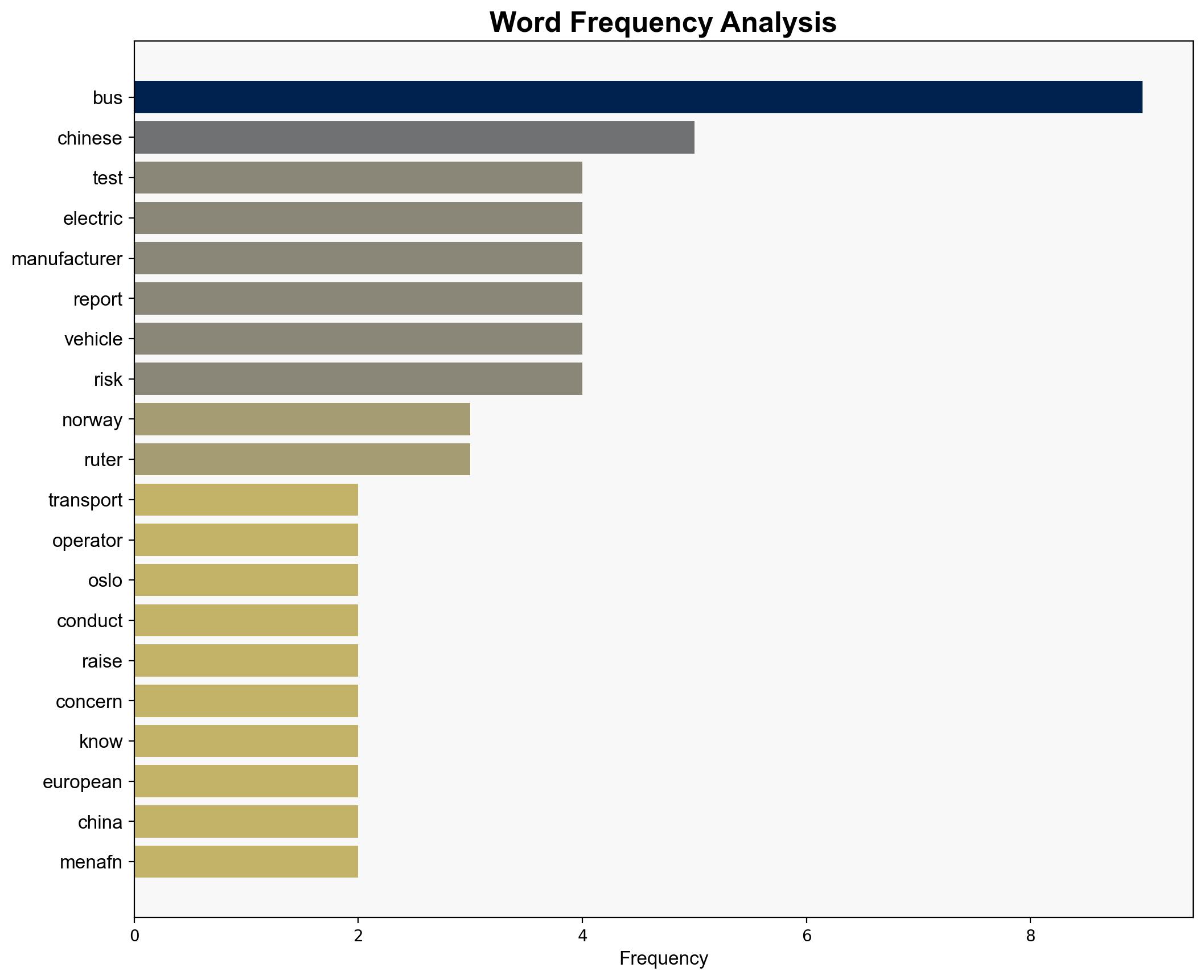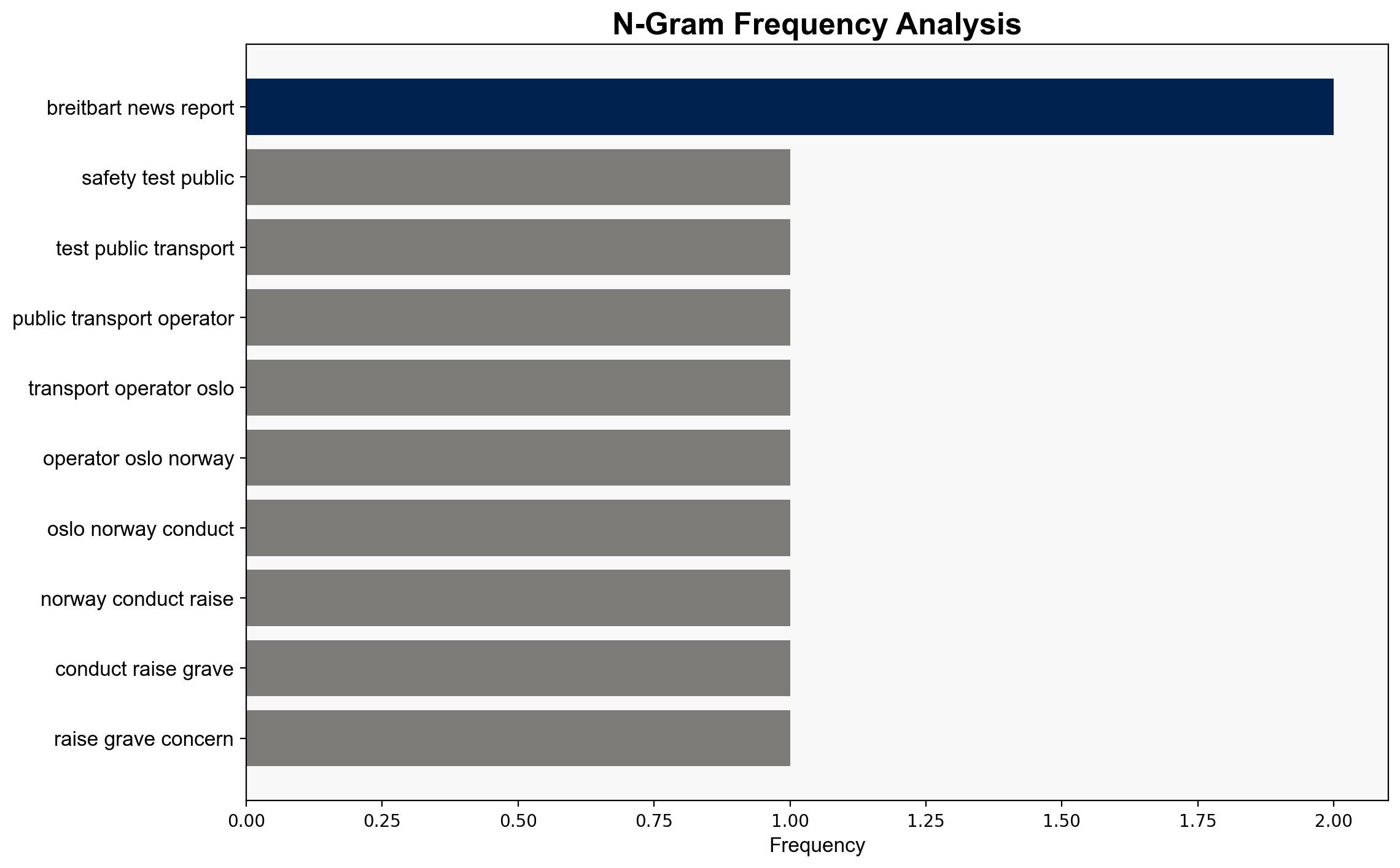Tests Find Chinese Manufacturer Can Manipulate Electric Buses in Norway – Breitbart News
Published on: 2025-11-01
Intelligence Report: Tests Find Chinese Manufacturer Can Manipulate Electric Buses in Norway – Breitbart News
1. BLUF (Bottom Line Up Front)
There is a moderate confidence level that Chinese electric buses in Norway pose a cybersecurity threat due to potential manipulation capabilities by the manufacturer. The most supported hypothesis suggests deliberate vulnerabilities in the software, possibly for strategic leverage. Recommended action includes enhancing cybersecurity measures and conducting further investigations into the software architecture of these buses.
2. Competing Hypotheses
1. **Deliberate Vulnerability Hypothesis**: The Chinese manufacturer intentionally embedded vulnerabilities in the electric buses’ software to allow remote manipulation, serving as a strategic tool for geopolitical leverage.
2. **Unintentional Vulnerability Hypothesis**: The vulnerabilities identified are unintentional, resulting from inadequate cybersecurity protocols during the manufacturing process, rather than a deliberate attempt to manipulate the buses.
Using ACH 2.0, the deliberate vulnerability hypothesis is better supported due to the pattern of similar concerns raised in other countries and the strategic advantage such capabilities could provide China.
3. Key Assumptions and Red Flags
– **Assumptions**: It is assumed that the vulnerabilities are exploitable and that the manufacturer has the capability and intent to manipulate the buses.
– **Red Flags**: The source’s potential bias, given the political nature of the report, and lack of technical details on how the manipulation could occur.
– **Blind Spots**: Limited information on the specific cybersecurity measures already in place and the response from the Chinese manufacturer.
4. Implications and Strategic Risks
– **Economic**: Potential disruption in public transport could lead to economic losses and increased scrutiny on Chinese products in Europe.
– **Cyber**: If vulnerabilities are exploited, it could set a precedent for similar threats in other sectors.
– **Geopolitical**: This issue could strain Norway-China relations and influence broader European policies on Chinese technology.
– **Psychological**: Public trust in electric buses and Chinese technology may decline, impacting market dynamics.
5. Recommendations and Outlook
- Conduct a comprehensive cybersecurity audit of all Chinese-manufactured electric buses in Norway.
- Engage with international cybersecurity experts to assess and mitigate potential threats.
- Develop contingency plans for rapid response in case of a cybersecurity breach.
- Scenario Projections:
- Best Case: Vulnerabilities are mitigated, and trust in public transport is restored.
- Worst Case: Exploitation of vulnerabilities leads to significant disruptions and geopolitical tensions.
- Most Likely: Incremental improvements in cybersecurity with ongoing scrutiny of Chinese technology.
6. Key Individuals and Entities
– Arild Tjomsland
– Bernt Reitan Jenssen
– Chinese manufacturer Yutong
7. Thematic Tags
national security threats, cybersecurity, counter-terrorism, regional focus




